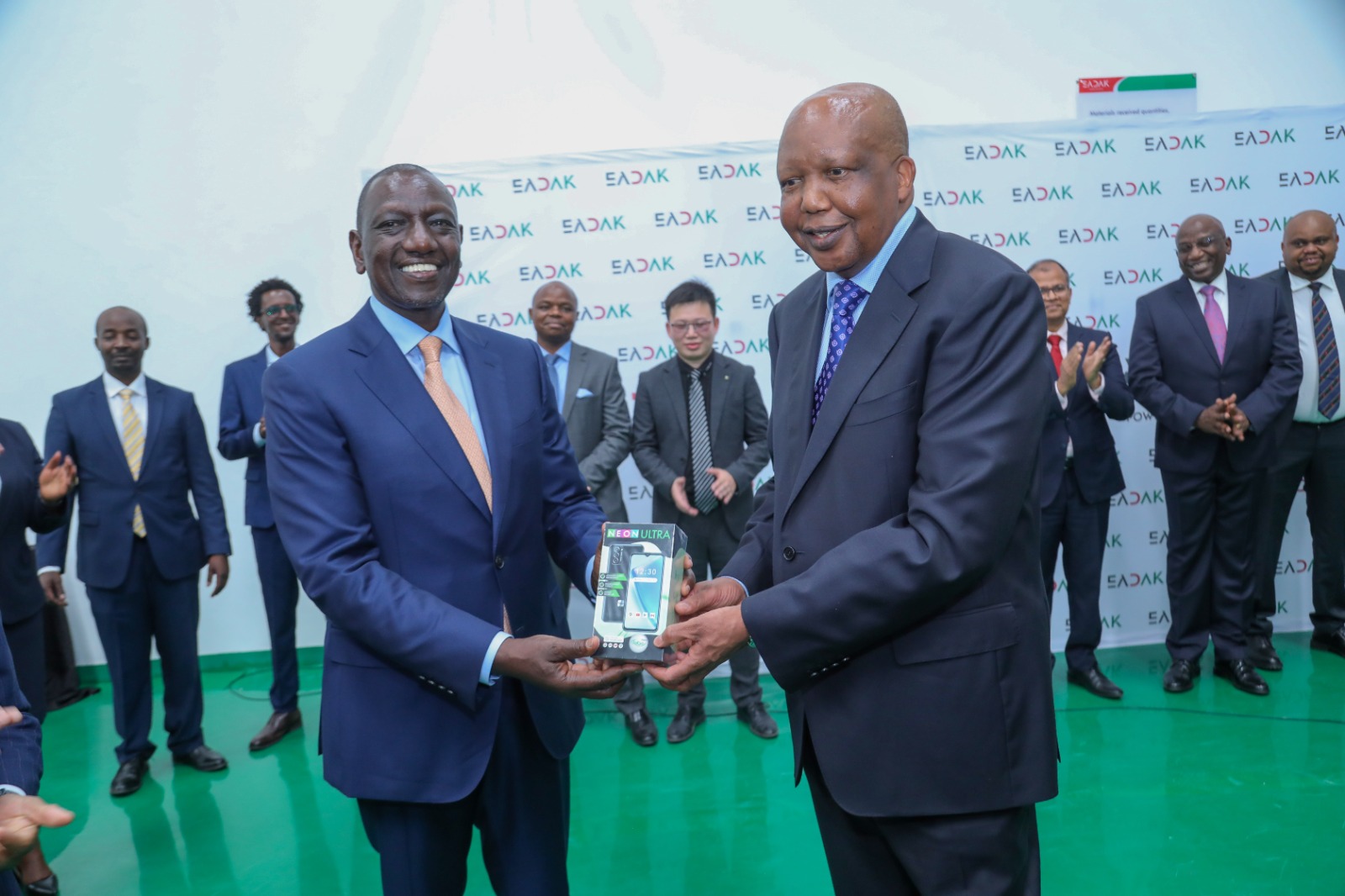Kenyans can now purchase locally assembled smartphones at affordable prices following the launch on Monday of the new East Africa Device Assembly Kenya Limited factory in Athi River.
The high-tech device assembly factory represents a joint venture between leading local mobile network operators Safaricom, Airtel and Telkom Kenya and global device manufacturers like Google, Nokia, Oppo, and Tecno.
The locally made phones will retail from just KES 7,499 and be available countrywide at carrier stores, dealer outlets and online marketplaces.
“This assembly plant supports the government’s critical agenda to enhance digital inclusion across Kenya,” said Joshua Chepkwony, Chairman of EADAK and CEO of Jamii Telecom, during the launch event. “By bringing together industry players and favorable policies, we’ve achieved the goal of affordable, quality devices made right here at home.”
Chepkwony added that the factory’s capacity to produce up to 3 million smartphones, laptops and other devices annually not only positions Kenya as a major tech hub in East Africa, but also creates economic opportunities through job creation in manufacturing.
The first phone models being assembled locally are the Neon 5-inch “Smarta” and 6.5-inch “Ultra” feature phones, with production ramping up over the coming months to include more 4G smartphone models as well as tablets.
The factory currently employs 300 people directly and is expected to create up to 500 technical jobs in total. Experts say the plant will also help foster talent development and drive broader growth.
Peter Ndegwa, CEO of Safaricom, Kenya’s largest mobile operator, reiterated the significance of the venture for connecting more citizens to critical services.
“This launch underscores our relentless pursuit to expand 4G access with quality, affordable devices and empower Kenyans through greater digital inclusion,” said Ndegwa. He cited existing programs like Lipa Mdogo Mdogo that allow smartphone purchases in installments.
With East Africa Device Assembly Kenya Limited now operational, industry leaders will be watching closely to see if locally assembled phones can help bridge the digital divide by making internet-enabled devices more accessible and affordable for all Kenyans.
















